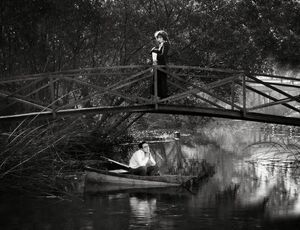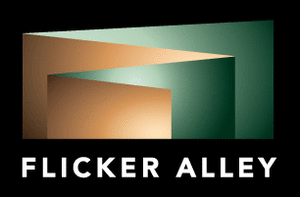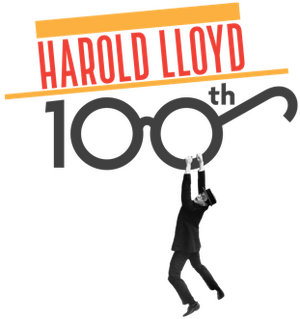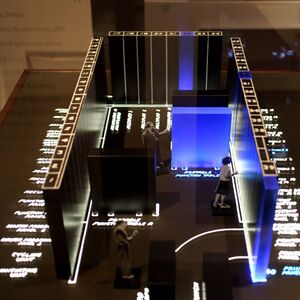Villa Aurora Events Archive
June 2015
Eclectic Salon
Villa Aurora (520 Paseo Miramar, Los Angeles, CA 90272)

Information
Masterpiece Discovery: Brahms String Sextet No.2 in G-Major, Opus 36
Hosted by Brian Lauritzen, from KUSC and LA Philharmonic’s “Inside the Music”
Performers: Salastina Music Society, with special guests Carrie Dennis, principal viola of Los Angeles Philharmonic and Robert deMaine, principal cello of Los Angeles Philharmonic
Salastina Music Society’s Masterpiece Discovery concert format shines the spotlight on great pillars of the classical repertoire. The series has included Vivaldi’s Four Seasons, Schoenberg’s Verklärte Nacht, Mendelssohn’s Octet for Strings, Brahms’ Clarinet Quintet, Wagner’s Siegfried Idyll, and many more. By sharing well-chosen musical examples (and explaining their meaning within the context of the piece as a whole), first-time and veteran concert-goers alike enjoy a uniquely enriching performance experience. Each performance is followed by a Q&A, which invites the audience to further engage with the material they’ve just heard
For this set of Masterpiece Discoveries, Dr. Bill Sloan has generously loaned the artists use of his Stradivarius and Guarneri del Gesu.
CHECKPOINT CALIFORNIA
Berlin

Information
Hollywood and Silicon Valley, palms, sea, blue skies; California is “a land of milk and honey” - with Villa Aurora right in the middle. In the 1940s, the former exile residence of Marta and Lion Feuchtwanger was a meeting point for European intellectuals. Today, it is an artists’ residence that embodies much more than “California Dreaming.”
Villa Aurora, on the occasion of its 20th anniversary, has teamed up with the Deutsche Bank KunstHalle to present nine Villa Aurora fellows in an exhibition entitled “Checkpoint California”. Works by Thomas Struth, Sabine Hornig, Christian Jankowski, Rosa Barba, Nairy Baghramian, Albrecht Schäfer, Philipp Lachenmann, Peggy Buth, and Michael Just expose experiences of transit and exile as well as transatlantic differences and contradictions.
“Checkpoint California” strives to raise awareness of historic movements and counter-movements, efforts of integration and dissociation, while assessing their various aspects, both positive and negative. At the same time, the exhibition celebrates the process of exchange and mediation successfully initiated by Villa Aurora over the past 20 years.
“Checkpoint California” will be on view from June 10 to 28, 2015, and will be accompanied by an extensive program of concerts, film screenings, performances, and talks.
A cooperation with

Checkpoint California is being supported by
 Thierry & Katharina Leduc
Thierry & Katharina Leduc
KREUZWEG
Kino Arsenal (Potsdamer Straße 2 | 10785 Berlin)
Information
The observation of the “return of religious longing” was the reason Dietrich Brüggemann co-wrote, with his sister Anna, the award-winning screenplay for the movie Kreuzweg (Stations of the Cross). In 14 stations, the film traces the ordeal of Mary (Lea van Acken), a young girl who suffers from her parents’ rigid religious dogmatism. Following the screening, Brüggemann and Stefan Kriekhaus—who dealt intensively with American expressions of Christianity during his stay at Villa Aurora—discuss cinematic approaches to the subject.
Dietrich Brüggemann (born in Munich, 1976) is a German film director and screenwriter. He studied film directing at the Film University Babelsberg Konrad Wolf from 2000 to 2006 and currently lives and works in Berlin. His film debut, Neun Szenen, was screened at the 2006 Berlinale and Perspektive Deutsches Kino and was awarded the Studio Hamburg Newcomer Award. In the same section he presented his second movie, Renn, wenn du kannst, in 2010. For Kreuzweg, written with his sister Anna, Brüggemann received the Silver Bear for Best Screenplay at the Berlinale 2014.
Stefan Kriekhaus (born in Haan am Rhein, 1968) is a director, screenwriter, and producer. He has worked as a freelance writer since 1998, among others he has co-authered Henner Winckler`s films Klassenfahrt (2002) and Lucy (2006). In 2005 Kriekhaus made the short film Baden, his directorial debut. Kriekhaus worked on several television productions, including Verliebt in Berlin (2006, as dialogue author), and Königinnen (2009, as dramaturgic consultant). His short film Die Ruhe bleibt (2012) won the Silver Bear at the Berlinale from the International Short Film Jury.
BRICKLEBRIT!
Deutsche Bank Kunsthalle (Unter den Linden 13-15 | 10117 Berlin)
Information
Uljana Wolf dedicates falsche freunde (false friends), her second book of poetry, to the irritation of translation, the transgression of man and language. Here, poetic charge derives from highlighting word pairs from two languages that look or sound alike but that have different meanings. The transition of bodies migrating between states plays a role, as do relations between people of different cultural backgrounds and languages. Wolf’s third volume of poetry, Meine schönste Lengevitch, looks at multilingualism and the clash of language regimes. Wolf discusses with Daniel Graf the linking of the ordinary and the political with poetry.
Uljana Wolf (born in Berlin, 1979) studied German literature, cultural studies, and English in Berlin and Krakow. She lives as a poet and translator in Berlin and Brooklyn. Wolf’s first publication, kochanie ich habe brot gekauft (2005), was followed by two collections of poems, falsche freunde and Box Office, both in 2009, and her critically acclaimed collection of prose poems, Meine schönste Lengevitch, published in 2013.As a translator, Wolf focuses on works by female lyricists from English and from Eastern European languages. She is the recipient of numerous scholarships and awards, including the 2006 Peter Huchel Prize, the 2006 Dresden Lyric Prize, the 2008 RAI Media Award / Meran Lyric Prize 2008, and, in 2013, the Wolfgang Weyrauch Prize.
Daniel Graf (born in 1980) studied modern German literature, linguistics, and musicology in Tübingen, Vienna, and Leipzig. He wrote his doctoral thesis on the poetry of Ingeborg Bachmann. Graf has worked for the literary magazine Edit and he completed an editorial fellowship at Berlin Verlag. He then worked as a freelance editor for Rowohlt and as trainee in the rights department of Grove Atlantic, in New York. Since May 2012, he has been a non-fiction literary agent at Graf & Graf, Berlin.
SCHINDLERS HÄUSER
Kino Arsenal (Potsdamer Straße 2 | 10785 Berlin)
Information
(Original version) and discussion with director Heinz Emighaus and architect Arno Brandlhuber
In his film Schindlers Häuser (Schindler’s Houses) Heinz Emigholz shows forty buildings dating from the years 1921 to 1952, made by the Austrian-American architect Rudolph Schindler, whose pioneering work established a unique branch of modern architecture in Southern California. The film also offers a portrait of urban life in Los Angeles. The screening is followed by a discussion with Heinz Emigholz and the architect Arno Brandlhuber.
Heinz Emigholz (born in Achim, 1948) is a filmmaker, artist, writer, and producer whose career has generated an expansive filmic and artistic oeuvre. In 1984 Emigholz began the film series Photographie und jenseits (Photography and Beyond) a “collection of freely combinable films that deal with products of human design,” with the sub-series Architektur als Autobiografie, which presented, in chronological order, the still extant buildings of architects such as Bruce Goff, Adolf Loos, Pier Luigi Nervi, Auguste Perret, and Rudolph Schindler. From 1993 to 2013 Emigholz was a professor of experimental film at the Universität der Künste Berlin. In May of 2012 he was appointed a member of the Akademie der Künste in Berlin.
Arno Brandlhuber (born in Wasserlos, 1964) is a Berlin-based architect and professor. He studied architecture at the Technischen Hochschule Darmstadt and the Accademia del Arte in Florence. Since 2003 he has been the chair of architecture and urban studies at the Akademie der Bildenden Künste Nürnberg. Brandlhuber is co-initiator of the forum Academie c/o in Berlin, which addresses the “the production of the space in the Berlin Republic.” In 2006 Brandlhuber founded his own studio and purchased a building plot in Berlin-Mitte (Brunnenstraße 9), where he built studios for artists and a gallery. Since 2010 he has been working with the idea of Berlin as a “green archipelago,” an urban concept that was developed in 1977 that promotes heterogeneity, cost-effective construction, and affordable rent.
MARTA AND HILDA & CAN I BE YOUR BRATWURST, PLEASE?
Kino Arsenal (Potsdamer Straße 2 | 10785 Berlin)
Information
(English version with German subtitles & Original English version) and discussion with director Rosa von Praunheim and guests
In Marta and Hilda, Rosa von Praunheim explores the relationship between Marta Feuchtwanger and Hilda Waldo after Lion Feuchtwanger’s death. Both had devoted their lives to his work and were thus confronted with special challenges when he was gone. In Can I Be Your Bratwurst, Please?, created for the series “Erotic Tales,” by Regina Ziegler, Rosa von Praunheim toys with California’s beauty craze. A stranger from the Midwest comes to Hollywood, rents a room in a motel, and becomes a fanciful treat for all the motel guests. Both films were made during von Praunheim’s fellowship at the Villa Aurora, in 1998. Screening to be followed by Q & A with Rosa von Praunheim and guests.
Rosa von Praunheim (born as Holger Radtke in Riga, 1942) is a key representative of postmodern German film. In the 1960s his debut experimental and short films, such as Samuel Beckett (1969), and Schwestern der Revolution (1969) (Sisters of the Revolution) achieved immediate acclaim. With his 1970 documentary Nicht der Homosexuelle ist pervers, sondern die Situation, in der er lebt (It’s Not the Homosexual Who’s Perverse, It’s the Society in which He Lives), von Praunheim become an icon of the gay movement in Germany. Among his accolades are the German Film Award (1979), the First Steps Honorary Award (2013), and the Special Teddy Award (2014). In March 2015 von Praunheim was awarded the German Order of Merit.
INTERSEX
Deutsche Bank Kunsthalle (Unter den Linden 13-15 | 10117 Berlin)
Information
In his debut album, Intersex, Steven Warwick, aka Heatsick, musically interpreted the sexual theory of the Jewish-born physician Magnus Hirschfeld, who fled Nazi Germany in 1931. On stage, Heatsick works with a keyboard and manipulated guitar pedals to forge a sound reminiscent of the electronic music of the 1970s. In spring 2015 Steven Warwick spent time at Villa Aurora, as a fellow of Musikboards Berlin.
Participants
Steven Warwick (born in Great Britain, 1982) is a Berlin-based interdisciplinary artist and musician. Warwick is known for his solo project, Heatsick, and as a member of the duo Birds of Delay. As Heatsick, Warwick produces “unfinished, rough, and at the same time dreamy dance music that is always a little embarrassed to be called house” (De: Bug). In addition to vocals, he uses keyboards and percussion to create a conceptually discordant sound that is equally playful and challenging, a combination of concept art, politics, and dance floor.
Nicola Mascia (born in Turin, Italy, 1975) is a dancer and choreograph. He studied jazz and contemporary dance in Turin, Rome, and Los Angeles. In 1996, he moved to Berlin to work with the company Sasha Waltz & Guests. Mascia was involved in the creation, performance and international touring of many projects including “Allee der Kosmonauten”, “Zweiland”, “Körper”, “noBody”, “insideout”, “Dialoge 09 – Neues Museum” and “Dialoge 09 – MAXXI”. In 2005, together with Israeli choreographer and performer Matan Zamir, he co-founded the collaborative duo matanicola.
3rd Annual SILENT SALON
Villa Aurora (520 Paseo Miramar Los Angeles, CA 90272)

Information
Saturday, June 20 @ 8:15 p.m.
In Person: Suzanne Lloyd
HAROLD LLOYD in GIRL SHY (1924, 82 min. directed by Fred Newmeyer and Sam Taylor)
Harold is a shy tailor's apprentice who has a pronounced stutter and is afraid of girls. He spends his lonely evenings writing a book called “The Secret of Love Making” until he is galvanized into action when he discovers that the girl he loves (Jobyna Ralston) is about to marry a bigamist. What follows is arguably the greatest race-to-the-rescue sequence of the entire silent cinema. The film's ending was the inspiration for Mike Nichol's The Graduate (1967) over forty years later. One of Lloyd's most influential and important films.
Partners
The Harold Lloyd Foundation, Flicker Alley and Villa Aurora present
SILENT SALON 2015


Artists’ talk | BERLIN – LOS ANGELES: SEEING AS PROCESS
Deutsche Bank Kunsthalle (Unter den Linden 13-15 | 10117 Berlin)
Information
Veronika Kellndorfer is a Berlin-based artist who frequently works in Los Angeles; Steven Rowell is a Los Angeles-based artist who has lived and worked in Berlin and who will be returning to Berlin as a Villa Aurora fellow in 2015.
Both artists treat locations and structures that could seem benign in their overt aspect, but which in fact belie disconcerting implications that both enhance and transcend their aesthetic interest. As these implications reveal themselves to the viewer, the mere appearance of these works recedes into their accruing status as metonyms for narratives of potentially dark aspects of contemporary history.
Kellndorfer often integrates formal and conceptual aspects of a work by means of her emphasis on semi-transparent and semi-reflective layers inherent in her subjects—a strategy that simultaneously achieves and symbolizes this integration. Rowell’s research-based projects invariably generate tensions between their themes and the formal aspects of their revelation, an attribute that both reinforces their expressive affects, and invests them with aesthetic criteria that transcend conventional research or documentary.
Participants
Veronika Kellndorfer(born in Munich, 1962) started her studies of art in 1982 at Hochschule für angewandte Künste in Vienna. Moving to Berlin Kellndorfer pursued her studies of Art at Universität der Künste until 1990. She is most renowned for her artistic examinations of architecture, which appear as a transla-tional junction between architectural objects, their history and emerging (social) space, as well as between various techniques of capturing, preserving and transmitting these observations and reflections. Veronika Kellndorfer has received numerous grants since then, which comprise a Stiftung Kunstfonds grant in Bonn (1998), an Akademie Schloss Solitude artist residency in Stuttgart (2000), a Villa Aurora residency in Los Angeles (2003), a Villa Massimo residency in Rome (2005), as well as a Goethe-Institute Villa Kamogawa artist residency in Kyoto (2012), among many others. In 2014, Kellndorfer was Senior Fellow at IKKM, Bauhaus Universität Weimar. Kellndorfer‘s work (collaborative and solo) has among others been exhibited at the following galleries and museums: Christopher Grimes Gallery, Santa Monica, CA; Berlinische Galerie, Berlin; Hamburger Bahnhof, Berlin and Pinakothek der Moderne, Munich. Veronika Kellndorfer lives and works in Berlin.
Steve Rowell is a research-based artist who works with still and moving images, sound, installation, maps, and spatial concepts. Currently based in Los Angeles, he has lived in Berlin, Chicago, and Washington DC, over the past 20 years. His transdisciplinary practice focuses on overlapping aspects of technology, perception, and culture as related to ontology and landscape. Rowell contextualizes the built environment with the surrounding medium of nature; appropriating the methods and tools of the geographer and archeologist. In addition to being Program Manager at The Center for Land Use Interpretation (Los Angeles) since 2001, he has collaborated with SIMPARCH (Chicago) and The Office of Experiments (London). Steve's work (collaborative and solo) has been exhibited internationally at a range of galleries and museums, including: The 2006 Whitney Biennial and PS1, New York; Yerba Buena Center for The Arts, San Francisco; The Smithsonian American Art Museum, Washington, DC; Temporäre Kunsthalle and NGBK, Berlin; The Barbican Art Centre and the Frieze Art Fair, London; The John Hansard Gallery, Southampton; Ballroom Marfa; The Center for PostNatural History, Pittsburgh; The Institute for Visual Art, Milwaukee; and The Museum of Contemporary Art, Chicago. In 2013 he received awards from Creative Capital and the Graham Foundation for Advanced Studies in the Fine Arts.
Partner
A cooperation with the Senate Chancellery Berlin as part of the City Partnership Berlin—Los Angeles
BORDERS
Deutsche Bank Kunsthalle (Unter den Linden 13-15 | 10117 Berlin)
Information
The question of national and social boundaries has risen anew today owing to terrorism, hybrid warfare, and disaster scenarios and the concomitant dynamics of persistent monitoring. These developments have had a deep influence on our habits of perception. Where is the boundary between state and individual responsibility? Is the much-vaunted “civil society” reduced to absurdity when it undertakes to “break the habit" of social inequality? What does it mean when a city like Los Angeles faces bankruptcy? Or when a bankrupt bank-loan officer sits next to a broke debtor in a self-help group? How much ordinary life is possible if there is always "earthquake weather" (Strubel)? Last but not least: Is the “state of emergency” the dominant narrative of the present?
Participants
Katrin Röggla (born in Salzburg, 1971) lives and works as a writer in Berlin. The author of theater texts, radio plays, and essays has been awarded the Bruno Kreisky Prize for the Political Book (2005), the Nestroy Preis for the Best Play (2010) and the Arthur Schnitzler Prize (2012). Röggla is the author of, among other books, Niemand lacht rückwärts, Irres Wetter, really ground zero, and die alarmbereiten. In 2012 she was appointed as a member of the Akademie der Künste in Berlin.
Antje Rávic Strubel (born in Potsdam, 1974) lives and works in Potsdam. After an apprenticeship in bookselling, she studied American studies, psychology, and literature in Potsdam and at New York University. She is the recipient of the Ernst Willner Prize (2001), the Roswitha Prize (2003), and the German Critics Prize (2003). She is the author of the novels Offene Blende, Unter Schnee, Fremd Gehen, Ein Nachtstück, and Tupolew 134. Her book Kältere Schichten der Luft (2007) won the Hermann Hesse Prize and the Rheingau Literature Prize and was on the short list of the Leipzig Book Fair Prize. Her most recent book Sturz der Tage in die Nacht (2011) was nominated for the German Book Prize.
IMPERIEN SCHAUEN SICH AN: DAS EINGESCHOSSIGE AMERIKA
Deutsche Bank Kunsthalle (Unter den Linden 13-15 | 10117 Berlin)
Information
Travel Prologue: Imperien schauen sich an: Das eingeschossige Amerika (Empires facing each other: Little Golden America)
with Felicitas Hoppe, in German
3668 IlfPetrow is the name of a mysterious minor planet, discovered by Soviet astronomer Lyudmila Georgievna Karachkina and named after the writer duo Ilya Ilf and Yevgeny Petrov, who traveled to America on behalf of the Russian newspaper Pravda for four months in the 1930s, at the height of the Stalinist terror and the Great Depression. Under the title Das eingeschossige Amerika (literally, One-Storied America; translated as Little Golden America), the two satirists’ travelogue is an independent minded, fascinating combination of words and pictures that reflects the tension between the USSR and the USA during the emergence of fascism in Europe. Seventy years later, their steps are recounted by writer Felicitas Hoppe—together with visual artists Alexej Meschtschanow and Jana Müller, whom she met at the Villa Aurora. Das eingeschossige Amerika, published in German in 2011, by the Andere Bibliothek of the Eichborn Verlag, with a foreword by Hoppe, shows the Russian duo’s original route and the traveling artists’ reexamination of the East-West relationship—now in light of current political developments.
Participant
Felicitas Hoppe (born in Hameln, 1960) is a writer living in Berlin. She is the author of Picknick der Friseure (1996), Pigafetta (1999), Paradiese, Übersee (2003), Verbrecher und Versager (2004), and Johanna (2006), among others, including Sieben Schätze and Abenteuer – Was ist das, two of her lectures on poetics. In 2011 Hoppe reinterpreted Grünes Ei mit Speck, a translation of texts by American children’s author Dr. Seuss. Her “dream biography,” Hoppe, was published in 2012. She is the recipient of numerous awards, including the Aspekte Literature Prize (1996) and the Georg Büchner Prize (2012). Since 2007 she has been a member of the Deutschen Akademie für Sprache und Dichtung.
Udo Moll & Anna McCarthy
Villa Aurora (520 Paseo Miramar, Los Angeles, CA 90272)

Information
ENIAC Girls.
In an intriguingly abstract way it tells some of the stories around the early days of computer development in the U.S., focusing mainly on the group of young women that programmed the ENIAC computer between 1946 and 1948. ENIAC was the first fully functional computer based on purely electronic components. Without any precedence to their task, the "ENIAC girls" had to invent the basics of computer programming themselves. Mixing composed and improvised parts, acoustic trumpet playing and electronic music, Udo Moll creates a captivating concert installation.
Udo Moll's initial musical socialization process took place in the brass orchestra of the city of Uhingen. He studied empirical cultural sciences, musicology, romanistic and new German literature at the Eberhard-Karls-Universität Tübingen. Furthermore, he studied the jazz trumpet with Manfred Schoof and composition with Johannes Fritsch at the Music Academy Cologne.
Udo Moll works as a freelance composer, trumpeter and in the field of electronic music.
For more Information about his work, check out Udo's website:
www.udomoll.de
Screening of FASSBINDER IN LALALAND and performance DRINK COLD, PISS WARM by Anna McCarthy
DRINK COLD, PISS WARM*
*quote from the novel Black Spring by Henry Miller
FASSBINDER IN LALALAND by Anna McCarthy
The short film tells the story of a woman living in Los Angeles who pretends to be Fassbinder. She speaks Bavarian with a strong American accent. On the occassion of “her” birthday she gives the first interview in 33 years.
Commissioned by and as part of the Fassbinder festival in Munich 2015 and filmed on location and during McCarthy's fellowship at Villa Aurora, Los Angeles
Starring residents of Villa Aurora: Friedel Schmoranzer-Johnson, Margit Kleinman, Diana Norris, Marius Lorenz, Mathilde Bonnefoy, Cyrill Lachauer, Antje Engelmann, Udo Moll.
FINISSAGE & ARTIST TALK
Deutsche Bank Kunsthalle (Unter den Linden 13-15 | 10117 Berlin)
Information
Susan Philipsz and Christian Jankowski are among the most remarkable artists working today. Philipsz explores the emotional and psychological effects of sound on the reception of spaces. At the end of 2015 she will travel to California as fellow of Villa Aurora to study the intelligence activities of the FBI in the context of exile experiences of Hanns Eisler, which will result in a video and sound installation. Jankowski’s work is best known for ironically and humorously confronting the supposed certainties and mechanisms of mass- media society. His work 16mm Mystery, created during his stay at the Villa Aurora and shown at “Checkpoint California,” evokes 9/11 via the staging of collapsing skyscraper in downtown Los Angeles. In this talk the two artists illuminate their working methods from a California perspective.
Participants
Christian Jankowski (born in Göttingen, 1968) is a visual artist living and working in Berlin. He studied at the Hochschule für Bildende Künste in Hamburg and since 2005 has been a professor of sculpture (installation, performance, and video) at the Akademie der Bildenden Künste in Stuttgart. He has had solo exhibitions at a number of international museums, including the Museum für Gegenwartskunst, Basel (2003), Museo d'Arte Contemporanea, Rome (2003), Miami Art Museum (2007), and Berlinische Galerie (2011). In addition to group exhibitions at PS1, Jankowski was included in shows at the Neue Nationalgalerie Berlin (2007), the Museum of Contemporary Art Tokyo (2011), and K20 Kunstsammlung Nordrhein-Westfalen, Düsseldorf (2011). In 2013 he was awarded the Videonale-Preis der Kfw-Stiftung. In 2016 Jankowski will be the curator of the European Biennial of Contemporary Art, Manifesta, in Zurich.
Susan Philipsz (born in Glasgow, 1965) is a visual artist living and working in Berlin. She received her bachelor of fine arts degree from the Jordanstone College of Art, Dundee (1989-93) and a master’s degree at the University of Ulster, Belfast (1993-94). In 2000, she received a scholarship to the PS1 residency program, and in 2001 she was a fellow at KunstWerke in Berlin. In 2010 Philipsz was awarded the esteemed Turner Prize, and in 2014 the Order of the British Empire. Most recently her work was exhibited at K21 Ständehaus, Kunstsammlung Nordrhein-Westfalen, Düsseldorf (2013), Eastside Projects, Birmingham (2014), at various locations in Denmark, Sweden, and Norway (2014), Governors Island, New York, (2014), and at the Hamburger Bahnhof, in Berlin (2014).
Performance | INTERVENTION #4 / BERLIN – CHECKPOINT CALIFORNIA
Berlin
Information
matanicola (Nicola Mascia und Matan Zamir) / Claudia De Serpa Soares / Jeff Wood
“Intervention #4” is a continuation of matanicola’s ongoing improvisation series “versus,” which will be featured during the exhibition Checkpoint California. Expanding on their idea of two or more artists standing in opposition to each other, the series of events focuses on improvisation as a creative act. The goal is to allow a single happening to emerge out of each confrontation, each of which takes place in a different city or venue, and each time with a different combination of artists. The performances have a very flexible format, without any rules or long rehearsal periods, they seem as if they are occurring spontaneously. An instant composition is being created as it is being performed in front of an audience, exposing the fragility and risks taken during the creative process. The site specific performances are deeply inspired and influenced by the architecture of the performance venues; a reaction to space itself and a chance to discover and collect new choreographic material.
matanicola
The Israeli choreographer and performer Matan Zamir and Italian Nicola Mascia founded the Berlin-based collaborative duo matanicola after working with prestigious international companies and artists such as: Sasha Waltz & Guests, Batsheva Dance Company, Benoit Lachambre, Ohad Naharin, Emio Greco/PC and Yasmeen Godder amongst others. Their body of work, thus far, includes six productions: “under” (Kurt Jooss Prize 2007, created in 2005, in collaboration with Israeli choreographer Yasmeen Godder); “Ladies first” (2007); “What on Earth” (2010); “Piece of me” (2011); “To this purpose only” (2013, for and with the Italian company Fattoria Vittadini, “bodieSLANGuage” (2014); as well as an ongoing improvisation series: “versus” (2006).
Their work has been commissioned, co-produced and supported by Sasha Waltz & Guests, Sophiensaele, Hauptstadtkulturfonds, Tanz im August – Internationales Tanzfest and Radialsystem V in Berlin, Fonds Darstellende Künste e.V., European Association for Jewish Culture, Goethe-Institut and Grand Theatre Groningen. matanicola has been invited to numerous international festivals. In 2012, the duo was invited by the Festival Les Grandes Traversées in Bordeaux, to curate the twelfth edition of the festival entitled “matanicola’s Magical Mystery Tour.” matanicola has also been collaborating as choreographers and performers on music videos and live shows with artists such as Peaches, Hanayo and Mignon.






